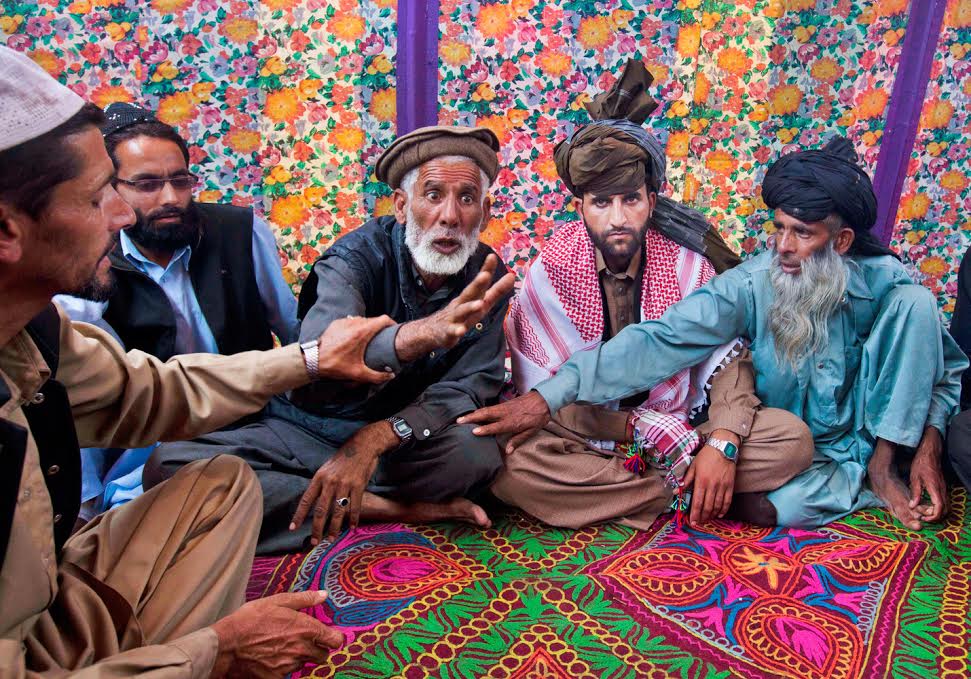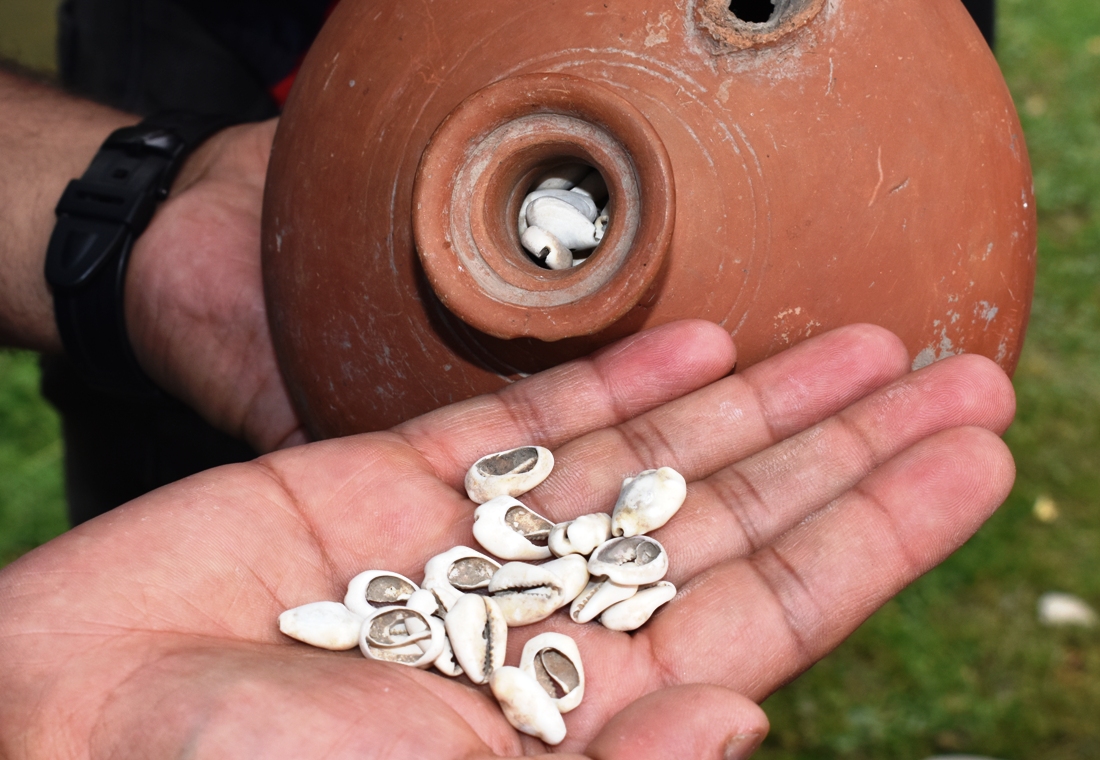by Hurmat Altaf.
“The worker picked up Pakhom’s spade, dug a grave, and buried him—six feet from head to heel, exactly the amount of land a man needs.”
(Leo Tolstoy, How Much Land Does a Man Need?)

The old Kashmiri proverb Mulan Droth Tah Patran Sagh brings my entire concept to fruition. The literal meaning of the famous saying is “a sickle for the roots, but water for the leaves.”
Owing to the ambiguous nature of literature, this proverb could be interpreted in enormous ways. A simple interpretation is that ‘you love the offspring of a person you dislike or hate’. The symbolic interpretations of the saying are related to the concepts of relationships.
In other words, close relations are left behind and mundane relationships are given importance. Besides, it could be interpreted as emphasising the trivial aspects of life, such as materialistic possessions, while ignoring the important ones. This proverb somehow befits the condition of our contemporary society, where people seem to forget the significance of all the worthwhile things around them.
With the advent of modernity, our society witnessed major changes, be it in the form of lifestyle, change in daily routines, or any other, followed by an increased gap between in-person meetings, miscommunication, and an increase in broken relationships (of any sort). However, we might have observed that over the years everyone has become so engrossed with their busy schedules that they don’t even have a spare moment to spend time with their loved ones, thus resulting in miscommunication and eventually broken relationships.
Having said that, have we ever considered what the root cause of all of the aforementioned events is? What makes a person so hardhearted that he is willing to end long-term relationships? It consists solely of three elements: greed, materialism, and jealousy. Greed means to have the desire for things more than one has in possession; materialism, on the other hand, means an excess want of materialistic things; and eventually, jealousy is the product of these two elements.

We are overtaken by greed in such a manner that one such model is that in almost every family there is a conflict between siblings regarding a piece of land, property, or anything related to the same without even comprehending the fact that excessive desires can lead them to lose everything, including precious relationships. By this, I am reminded of a quote: “The worker picked up Pakhom’s spade, dug a grave, and buried him—six feet from head to heel, exactly the amount of land a man needs.” (Leo Tolstoy, How Much Land Does a Man Need?)
However, we live in a society where we must deal with these pressures, but that does not mean that we will betray our own blood and believe that by doing this agonising act against them, we will live a prosperous life.
Materialism is yet another matter of concern, the best example that I can specify in it is that of the lavish marriages we observe nowadays. In present times, marriage rather than a union of two beings on a simple basis has become more than that of a show-off in order to demean those who are devoid of material wealth, therefore leaving behind our roots.
It is quite unfortunate that in order to ensure the happiness of one’s daughter in her to be home, these materialistic things will prove how she will be received, or for that matter, treated, over there. As the saying goes, marriages are made in heaven, but due to these luxurious expenses one perceives at the moment, it seems to be what Eunice de Souza has said, “Marriages Are Made.”
Additionally, still after all these extravagances in marriages, we come up with ample cases of domestic violence, brutal killings of daughters-in-law, and many related ones. As Naseem Shafaie has rightly said in one of her notable works: “…Will they awaken her on gentle, mellow sounds? Or, will they, I misgive, snatch her sleep away?” thus materializing the condition of women in our worldly-minded society. Hence, materialism is working at all levels in our society, and we are under its clutches.
Another factor that is the end product of greed and materialism is jealousy or envy, which has engulfed almost everyone these days. If a person successfully attempts his course of action in life, followed by achieving great things through hard work, dedication, and enthusiasm, he is despised by his own kin, and the irony is that everyone will act quite jovial at face value while using illicit means to stop him prosper. Envy makes a person go to any extent without even considering their conscience.

Christopher Marlowe, in his splendid work, Doctor Faustus, considers Envy as one of the seven deadly sins. Envy is personified in the play and says, “I am Envy, begotten of a chimney-sweeper and an oyster-wife. I cannot read, and therefore wish all books were burnt; I am lean with seeing others eat – O that there would come a famine through all the world, that all might die, and I live alone; then thou shouldst see how fat I would be!.”
Therefore, these things are inherited in a human being, and he cannot altogether deprive himself of them, but I believe that there is a possibility for one to move beyond these things to some extent and value relationships more than anything else.
Otherwise, one is left with repentance and nothing else. Furthermore, these are things that lead a society slowly and steadily towards degradation. As the saying goes, “This is the way the world ends, Not with a bang but with a whimper.” (TS Eliot, The Hollow Men).
(The author is pursuing BA Honours in English from Cluster University Srinagar, Kashmir. The opinions expressed in this article are those of the author and do not purport to reflect the opinions or views of Kashmir Life.)















